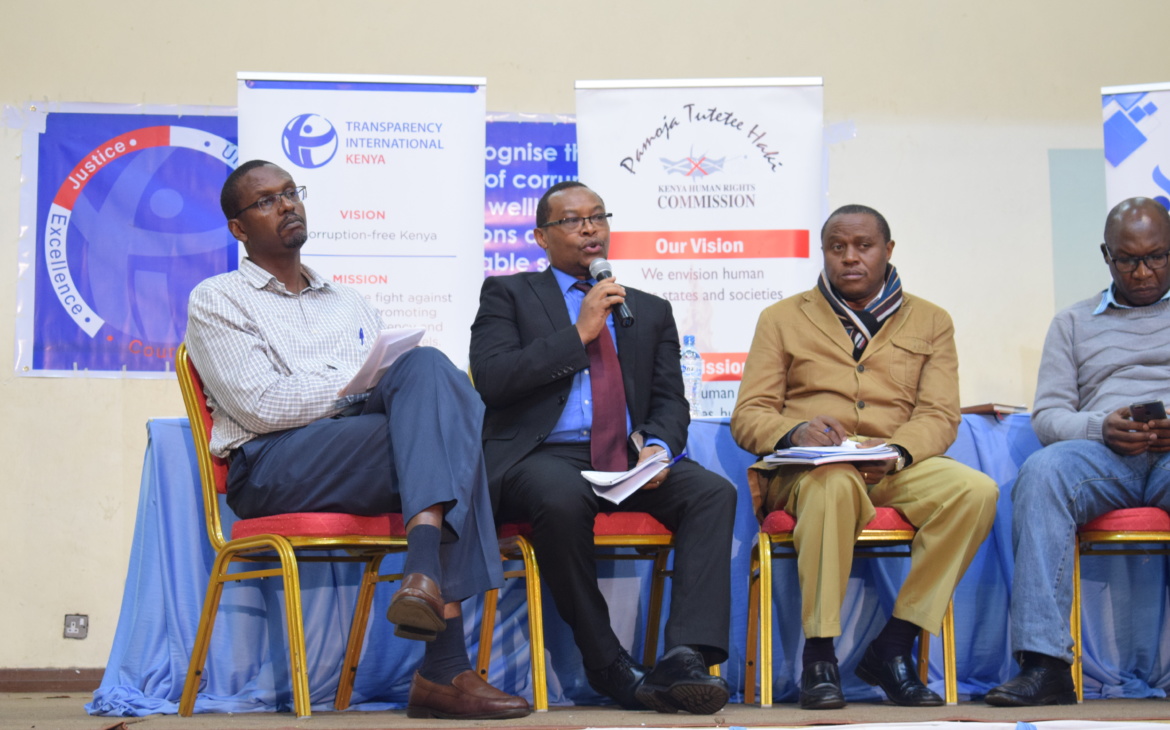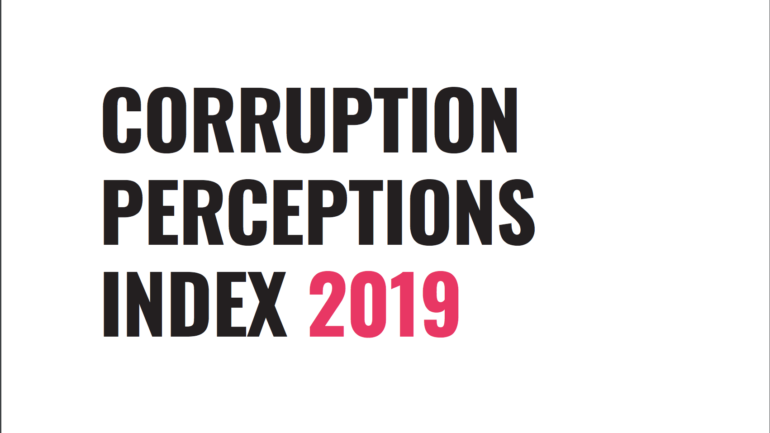Theme: ‘Winning the Fight against Corruption: A Sustainable Path to Africa’s Transformation’
The African Union (AU) Assembly declared 2018 the ‘African Year of Anti-Corruption’ and 11 July of every year as the “African Anti-Corruption Day”. The inaugural African Anti-Corruption Day is dedicated to giving prominence to the anti-Corruption fight on the Continent and to commemorate the adoption of the African Union Convention on Preventing and Combating Corruption (AUCPCC).
This Day offers governments, leaders, anti-corruption agencies, civil society organisations, the private sector and citizens an opportunity raise the profile on anti-corruption issues and to advocate for transparency, accountability, integrity and better service delivery from public institutions nationally and regionally.

Governments and non-state actors have been instrumental in raising awareness about the devastating effects of corruption on governance, service delivery, human rights and socio-economic development. Additionally, numerous campaigns have been organized to influence national, regional and global agendas that seek to demand for systemic change. Despite efforts made towards combating the culture of corruption, the vice continues to erode people’s sense of equity, dignity and patriotism. This is reflected by citizen’s general sense of despair, given the failure of governments to effectively address corruption.
Kenyan Context

The 2017 Corruption Perceptions Index (CPI), published by Transparency International, highlights that majority of countries are making little or no progress in ending corruption, while further analysis shows journalists and activists in corrupt countries risk their lives every day in an effort to speak out. The findings very much reflect the Kenyan situation, particularly the attempts by government to curtail the governance sector NGOs and media space, culminating in the media shutdown early in 2018.
Over the last couple of months, the Auditor General’s reports and investigations by the Ethics and Anti-corruption Commission as well as the Directorate of Criminal Investigations have highlighted the unrelenting prominence of corruption and wanton wastage of public resources. Among the recent corruption scandals include the Kshs. 1.9 Billion irregular procurement payments under the National Youth Service (NYS), the fraudulent payments for maize supplied to the National Cereals and Produce Board, the Ruaraka Land probe and controversial sugar imports.
Activities to mark the African Anti-Corruption Day
The A4T team participated in planning and carrying out activities to mark the African Anti-Corruption Day marked on 11th July 2018. The activities marking the day offered a great opportunity to create awareness on the effects of corruption in the Education and Health sectors as the focus areas of the A4T project.
The activities were organised in partnership with other organisations including; Kenya Human Rights Commission (KHRC) and the Kenyan Section of the International Commission of Jurists (ICJ). Among the activities carried out included:
- Online Campaign on 10th July 2018 – The two hashtags for the tweet chat #AfricansAgainstCorruption and #STOPTheseTHIEVES generated great discussions online around corruption in Kenya and regionally. The two hashtags were the top trends in the Country on the day. The A4T team also participated in developing an online Citizen Against Corruption mapping tool which was also publicised on the A4T App where citizens mapped out their individual and collective actions against corruption on the Citizens Against Corruption Mapping Tool. The tool highlighted information on:
- the actions people have initiated in the fight against corruption;
- the actions people are willing to engage in towards supporting the anti-corruption agenda; and
- the support people need to effectively engage in the fight against corruption.
- A Public Dialogue Forum at Ufungamano House in Nairobi was held on 11th July 2018
The forum was organised into two panel discussions consisting of community activists and civil society organisations.The discussions centred on citizens experiences and their role in the anti-corruption agenda as presented by the citizens panel and plenary; and the regional anti-corruption agenda, the cost of corruption and an analysis of the anti-corruption legal and institutional frameworks in existence and how they have contributed to the anti-corruption agenda. The media also extensively covered and reported on the event. Kenyans Mark the African Anti-Corruption Day


